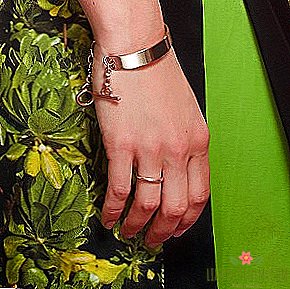Women's World Chess Champion Hou Yifan on the Wunderkind's Career
Chess is an elite and mostly male sport - In the past few years, they are rapidly returning to their former popularity. The whole world is watching the fights of grandmasters again, and even those who are far from chess have heard about last year’s match for the world champion title between Russian Sergey Karjakin and Norwegian Magnus Carlsen. Now in Moscow, the second stage of one of the key chess championships is taking place - the Grand Prix series: two winners of this tournament will go on a challenger tour and will have the opportunity to fight with Carlsen for the champion title.
After the first two rounds in the Moscow stage, the Chinese woman Hou Yifan is leading - the only woman among the grandmasters acting in the Grand Prix series, World Chess nominee, who organizes all the championship championship tournaments. Although Yifan is only 23 years old, it is unlikely that someone will turn his tongue to call her "promising": at the age of 12, the Chinese woman became the youngest international grandmaster in chess history, and at the age of 14 she reached the World Cup final. Four times defended the title of the best among women, Yifan began to compete in the men's championships, where the average level of players is much higher (as well as the prize fund).
Before the start of the Moscow stage of the Grand Prix, we talked with Hou about her childhood as a “chess prodigy” and why women do not compete in chess with men.

Chess childhood
I was five and a half years old when I started studying with my first teacher, an amateur chess player, who set up a small school at his home in Nanjing. Before the spread of the Internet, there was very little subject literature and in general any information about chess. I especially remember the old textbook from which our trainer took the exercises: it was necessary to arrange the figures as indicated in the scheme, and start the game from these positions.
I was very small and I don’t remember exactly how it was, but my parents told me that I started playing Chinese checkers very early - and immediately started to beat those who taught me. Mom and dad decided that it would be nice to introduce me to other intellectual games that develop logical thinking, and they wrote me into the chess section, where I began to spend several hours a week. At the same time, as an ordinary child, I was engaged in many other things that were interesting to me: music, dancing, playing and communicating with peers. At some point, the lessons became too much, and my parents suggested that I choose - I decided that I would continue to learn chess, because I liked it the most. Then I started to go to the chess camp in the north of China - there I worked with a coach, who at one time was a national champion, but left a career at the peak. And at the age of ten I was accepted to the Beijing National Chess Center.
About family and friends
Geeks often feel sorry for the geeks, they say that they allegedly did not have a normal childhood and missed some important stages of their lives that they could not make up for. Everything is wrong with me: I have always been engaged only in what I really like, nobody forced me. When it became clear that everything was serious with chess, our whole family moved to Beijing. Mom was a nurse, but decided to leave work so that I could study and accompanied me on all trips - this was especially important when I was a teenager and could not go to an unfamiliar country to the tournament alone. Usually, chess players can bring a friend or family member to the tournament, and my constant support group is my mother. She is still here with me in Moscow.

Chess now takes up most of my time, but this does not mean that I do not have other hobbies and time for entertainment. It was difficult to combine chess and study, especially in high school, but I do not think that I missed something important from school life. Last year she graduated from the faculty of international relations and, probably, I will continue my studies in a magistracy in the USA.
Today, a computer plays a major role in training chess players, but the lessons are not limited to this: together with other members of the national team, we read books about chess, solve problems, sort out other people's games, and conduct training matches between ourselves. Of course, sometimes I play with friends, just to have fun. There is a pleasant atmosphere in the chess community, and, naturally, I have a lot of chess friends, and not only from China. The circle of people constantly participating in international tournaments is rather narrow, and sooner or later you make friendly relations with players from other countries.
Why do we need "female" chess
Although sometimes they talk about the "male" and "female" style of play, I think that first of all everything depends on the individual characteristics of a chess player or on some cultural aspects. It is believed, for example, that men are more aggressive and tend to take risks, but I do not think that these qualities are really determined by the gender of the player. On average, women play chess worse, but it’s not biology that is primarily to blame, but history - although you shouldn’t forget that chess, like other sports, requires physical stamina and strength, while men are usually physically stronger. Perhaps women do make more emotional decisions and worry more during competitions, but this is not due to differences in brain structure, but to the lack of a strong tradition of women's chess and a lower level of education. Where will successful chess players come from if girls are not taught chess and take their classes seriously?

Women's championships are necessary, as they give chess players the opportunity to express themselves and gain competitive experience. But it is important to participate in mixed tournaments on a par with men - otherwise you will not recognize your real level. The main problem of women's competitions is an imperfect system of refereeing, but these are rather technical details, which I hope can be corrected. (this year, Hou Yifan refused to defend her title at the Women's World Championships in Tehran, as she considers it unjust to hold competitions in the play-off system. - Ed.). For example, according to current rules, the world champion among men does not need to go through all the qualifying stages to defend his title: now Magnus Carlsen is just sitting and waiting for all the other contenders to play with each other, and in 2018 he will fight the best of them. In the women's championship, the rules are different: every year you have to start all over again, which seems unfair to me.
About future
It is unlikely that in the foreseeable future, men's and women's tournaments will finally unite. So far, the division into the hands of the chess players themselves - especially since women have the full right to participate in men's competitions. Still, the difference in the average level of men and women in chess is too big: in the top 100 of the FIDE rating only one woman (Hungarian GM Judit Polgar. - Approx. Ed.)and there are hardly any girls in the top 1000 strong players - if there are no separate tournaments and a separate title of grandmaster among women, only a few players can compete for titles, compete and get paid for it, and everything will develop even slower. Each of us is working to reduce the gap, but it will take a long time to completely eliminate it.
I'm not sure that I want to train professional chess players in the future. I do not refuse this perspective, but it is much more interesting for me to promote chess among those who have never tried to play and do not plan to devote all their time to this. Chess classes helped me to become better in other areas of life - I want to share this experience and use my knowledge to help others.





